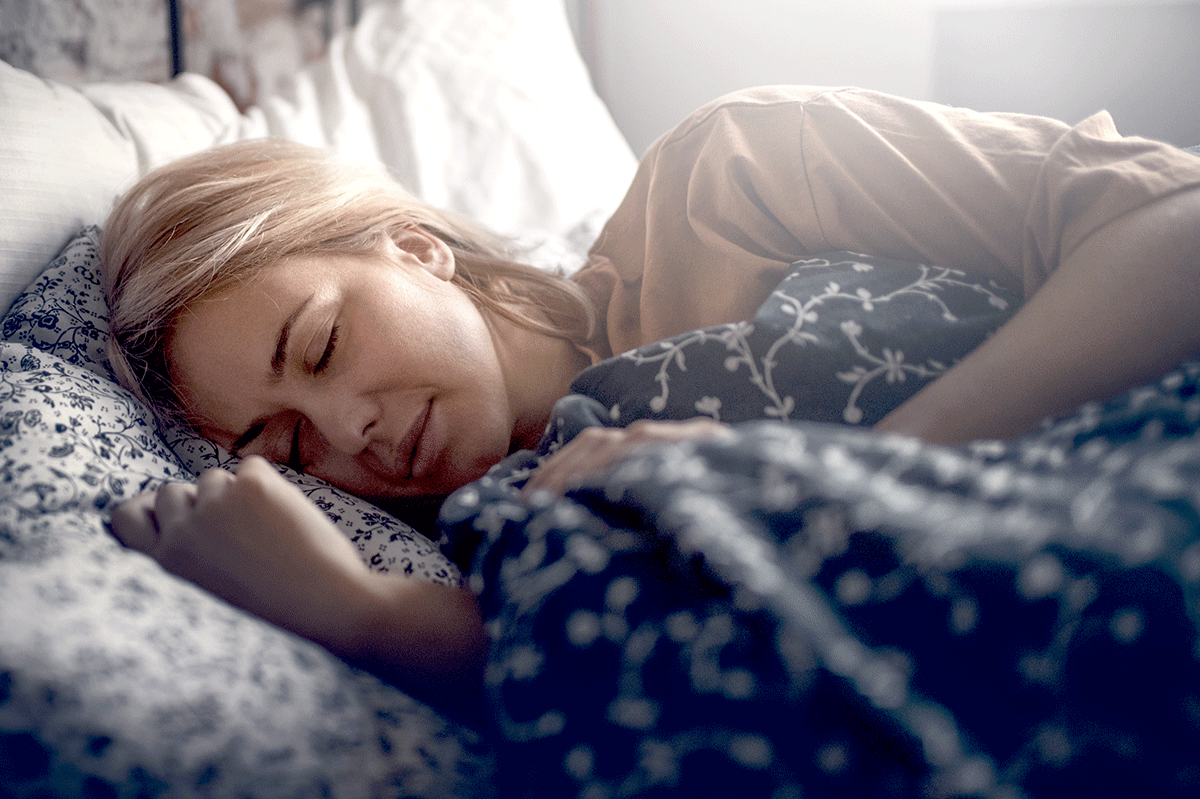
by: Abdullah Panchbhaya, MD | Family Medicine Resident
We’ve all had nights where we just don’t sleep. Sometimes it’s because of a conscious choice we made to stay up late into the night studying for a test, watching a movie, playing a game, or talking to friends. Sometimes it’s because of a medical condition such as sleep apnea affecting the quality of your sleep. Often, out of no choice of your own, you find yourself tossing and turning all night with your mind constantly racing. Worries about paying the bills, your grades in school, or the other affairs of your life can make good sleep difficult go achieve.
Personally, I have always had difficulty sleeping. Growing up, it would be because I would spend hours deep into the night playing computer games. As I grew older, it became nights spent studying for school or just tossing in bed worrying about the next test I had to take. In the back of my mind, I always knew that something needed to change but I had no idea what to do.
According to the CDC, more than 33% of adults do not get the recommended amount of sleep daily. This number is even higher in Georgia, where most counties have 38-48% of the adult population not getting enough sleep. The prevalence appears to be the greatest in those ranging from 25-54 years of age. Perhaps more surprising, the most recent reports from the CDC show that 68.8% of high school students are not receiving adequate sleep. Even worse, in those in grade 12, it’s 76.6%.
If it’s just one night of poor sleep, you typically find yourself significantly tired the next day. You may also find yourself struggling to concentrate and keep your eyes open and staying focused on the task at hand. You may frequently yawn and crave a daytime nap to help your body recover. However, once you’ve caught up and had a good long sleep session, you typically feel okay.
On the other hand, the long-term effects of chronic sleep deprivation are quite staggering and worrying. Sleep is the optimal time for memory consolidation in the brain. This is when your brain forms the necessary connections to take what you have learned and form it into long term memory so you can recall it later. This is why chronic sleep deprivation can hurt both long-term and short-term memory. This can be particularly worrisome in the student population where late nights are spent studying at the cost of a good night of sleep. Sleep deprivation is also associated with mood changes, such as worsening anxiety and depression. In addition, chronic sleep deprivation may lead to a decreased sex drive.
Sleep deprivation is also associated with an increased incidence of certain medical conditions. People with chronic sleep issues tend to have increased weight gain as well as an increased risk of type II diabetes, high blood pressure, stroke, heart attacks, COPD, and arthritis, just to name a few. For example, those who suffer from chronic sleep deprivation are one and a half times more likely to have a stroke when compared to those who get the recommended daily sleep.
Many things can be done before visiting your primary care doctor or taking any medications to help ensure that you are getting the necessary sleep you need. These suggestions will help you function at your best and to live healthy. Just like we can adopt habits to optimize our health, such as eating a specific type of diet or exercising, there are also habits that you can adopt to try and maximize the time and benefit of the sleep you are getting. This is known as sleep hygiene. Listed below are just some of the different habits you can incorporate into your own life.
- Build and stick to a consistent daily sleeping schedule. Try to fall asleep and wake up at the same time every single day.
- Have a sleep ritual that you follow every night before sleeping. This can include things like brushing your teeth, taking a quick shower, meditating, or reading a short chapter from a book. Following a consistent ritual will send psychological triggers to the brain to prepare you for sleep.
- Avoid consuming caffeine, energy drinks, or sugary drinks late in the afternoon or evening.
- Avoid consuming alcohol or nicotine before sleep.
- Try to avoid taking long naps during the day as much as possible. If you do need to nap, make sure they are short and try to limit it to the early afternoon.
- Avoid screen time one hour before going to bed. This includes watching TV, spending time on the computer, your tablet or your phone.
- Make sure your room is dark and quiet. Use blackout curtains or a sleep mask. The use of earplugs or a white noise machine can help block out unwanted noises.
- The bed should only be used for intimacy and sleep. This will help your brain associate the bed with sleep.
- If you are unable to fall asleep after 20 minutes or find yourself waking up and being unable to go to sleep, go to another room and read, draw or do another calming activity under low light. After 20 minutes, try to go back to sleep.
If after adopting these methods, you still find yourself struggling to sleep, then please see your primary care provider. We are more than willing and happy to help you identify the best ways to optimize your sleep and hopefully your health.
To schedule an appointment, please visit www.ngpg.org.

